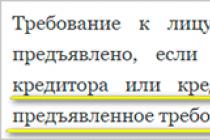Japan is one of those countries that today is on the verge of scientific achievements and technological innovation. Therefore, it is not surprising that the sector of cryptocurrency payment systems is developing in rapid strides: new Japanese cryptocurrencies are appearing, hundreds of crypto exchanges are opening, legislation is being improved, and the popularity of the market among the population is growing at a rapid pace. Next, we will study what the Land of the Rising Sun can offer to the cryptocurrency market, indicating whether it is worth investing in Japanese crypto projects.
Cryptocurrencies in Japan: laws and features
Just a few years ago, the Japanese authorities did not even think about what cryptocurrency is – why it is needed and how to regulate this market. The head of the country's Central Bank considered virtual money a dummy and, possibly, a financial bubble that was about to burst. But time passed, the bubble did not burst, and the cryptocurrency market grew by leaps and bounds, and this forced the Japanese authorities to take a closer look at the new financial instrument and decide what to do with it - execute or pardon.
When did Japan legalize cryptocurrencies?
The main reason for the revision of Japanese officials’ attitude towards the new financial instrument was the collapse of the MtGox cryptocurrency exchange, which until 2013 was actually a monopolist in this market, through which up to 80% of all Bitcoin trading transactions took place. The collapse took place at the beginning of 2014 due to bankruptcy - the exchange eventually discovered the loss of 850 thousand bitcoins, 200 thousand of which were eventually found (or returned by the owner of the site, according to one version). This theft of cryptocurrency in Japan caused panic in the market and led to a fall in the Bitcoin rate.
In addition, this event and subsequent legal proceedings that lasted throughout 2015 showed that virtual money has a real objective value that can be measured in fiat currency, and the market itself needs regulation and control by the state in order to protect its participants from fraud or force majeure circumstances (at least through insurance).

As a result, Japan legalized cryptocurrencies - Bitcoin and Ethereum were recognized as legal means of payment that can be used when making purchases and sales of goods or services on the Internet or offline. However, in fairness, it is worth emphasizing that this was a partial legalization, since normal regulation of cryptocurrencies in Japan appeared only in April 2017, when laws changing the fiscal, financial and civil legal framework of the country came into force. But this is not yet a complete victory for virtual money in the Land of the Rising Sun.
Regulation of cryptocurrencies in Japan
Although the new Japanese legislation on cryptocurrencies recognized their “functions similar to money,” they never received the status of “currency.” Thus, cryptocurrencies in Japan can be used for mutual settlements, and in addition, fiat money can be invested in them to preserve their value and/or receive investment profit, but all such transactions are not considered foreign exchange and are regulated by separate legislation.
In addition to determining the legal status, the regulation of cryptocurrencies in Japan has affected crypto exchanges. Mandatory licensing has been introduced for them, which is the responsibility of the Japanese Financial Services Agency (FSA). Moreover, in order to obtain a license, a cryptocurrency exchange must comply with KYC/AML (Know Your Customer and Anti-Money Laundering) standards and be transparent, i.e. show their owners and ultimate beneficiaries.
Only Japanese resident companies can apply for a license. The decision is made within two months. If a refusal is received, the exchange must cease its activities in the country. In the first months after the regulation of cryptocurrencies was introduced in Japan, more than 11 sites received a license to be a crypto exchange (in September last year) and somewhere around a couple of hundred applicants stood in the FSA queue to receive this status.
As for fiscal legislation, cryptocurrency owners in Japan were exempted from having to pay consumption tax (JCT) - an analogue of the usual value added tax (VAT). However, at the same time, Japanese cryptocurrencies and their foreign analogues fell under fiscal obligations to pay income tax if any use of virtual money brought profit to their owner or associated person.
Regulation of cryptocurrencies in Japan in matters related to ICOs is carried out without specialized legislation. The initial issue/allocation of coins here is subject to the Payment Services Law: the issuer must register properly with the Japanese financial bureau at the place of business. If the ICO is used for investment, then such activity falls under the Law on Exchanges and Financial Instruments.
The largest cryptocurrency theft in the world occurred in Japan
On January 26, 2018, one of the largest cryptocurrency exchanges, CoinCheck, registered in the Land of the Rising Sun, suddenly suspended the withdrawal of funds due to a series of suspicious events. First, all requests for the withdrawal of NEM coins (abbreviated on the exchange - XEM) were frozen, then this affected the rest of the cryptocurrencies, and in the end the withdrawal of fiat money was stopped. After another short period of time, trading in all currencies except Bitcoin was stopped. Transactions with cards and deposits also became unavailable.
As it turned out, the reason for the “freeze” was the largest theft of cryptocurrency in Japan, due to which 260 thousand people lost a total of about 400 million dollars (at the exchange rate at the time of the hack). This theft was the largest in the new millennium, and it once again showed that despite all the security, cryptocurrency can be stolen if you hack not the blockchain, but third-party services where the owners of the coins store data to access their accounts.

According to the president of NEM. io Foundation by Lon Wong, the NEM platform code is not compromised in any way, and CoinCheck's mistake is that they did not use multi-signature smart contracts. Lon Wong urged Japanese cryptocurrency exchanges not to repeat the mistakes of CoinCheck, neglecting security tools due to their own laziness or desire to save money.
Interestingly, as a result of the scandal, it turned out that the largest Japanese exchange, CoinCheck, was never registered with the FSA. Now this site will definitely get a license, if only it can recover from the hacker attack and not join the ranks of bankrupts.
Note: Japanese cryptocurrency NEM is the seventh largest in the world by capitalization; after the theft, its rate continues to fall, despite the general rise of the market.

What makes the Japanese cryptocurrency group stand out?
The main feature that sets Japanese cryptocurrencies apart from other virtual money is their support by the local population. Probably, in no other country are domestic coins as popular as in Japan, despite the fact that their price and capitalization are significantly lower than the main mastodons of this market (Bitcoin, Ethereum, Dash and others).
In all other respects, the Japanese group of cryptocurrencies corresponds to their foreign counterparts. The Japanese have not yet come up with any blockchain innovations. Their payment platforms are analogues of foreign projects without any significant changes in their technologies. There are even “funny” coins in them.
Japanese cryptocurrencies – list and review
Japanese programmers joined the race to conquer the market for cryptographic payment systems quite late, despite the fact that Japan was one of the first countries where crypto exchanges appeared, and the fact that the creator of Bitcoin, Satoshi Nakamoto, may have been Japanese himself. Next, we will review the most popular Japanese cryptocurrencies, the list of which is constantly updated with new items.
The first Japanese cryptocurrency MONACOIN, Monacoin (MONA)
Monacoin is considered the first Japanese cryptocurrency, which appeared in 2013 based on the Litecoin blockchain. According to its creator (or creators), the MONACOIN payment platform is designed to become an alternative to fiat money with a decentralized management system and maximum anonymity.

Key features of MONACOIN:
- the Script algorithm is used for encryption;
- to increase the difficulty of mining, the DGW algorithm is used;
- the speed of creating a block of the blockchain chain is about 2 minutes;
- the maximum volume of money supply is about 100 million coins;
- reward for creating a block – 30 coins (as of January 5, 2018);
- total coins mined – 15,790,763 XMR coins;
- The average transaction fee is $5.68.
In general, MONACOIN does not stand out among other cryptocurrencies, and its popularity is explained by the fact that it is the first Japanese coin.
Japanese analogue of Ethereum – CARDANO, Karnado (ADA)
The Japanese cryptocurrency CARDANO was launched not so long ago – on September 29, 2017. Although fundraising for this project was launched back in 2015. Carnado was created by Blockchain Development Output Hong Kong (IOHK) led by Charles Hoskinson, former co-founder of BitShares and Ethereum. This project aims to leverage user decentralized application smart contracts using blockchain sidechains, multi-party computing, and metadata.

The creators of CARDANO intend to develop their platform around the Recursive InterNetwork Architecture (RINA), which will use a consensus algorithm called Ouroboros proof of stake. In this protocol, full nodes elected by the community generate new blocks on the blockchain and verify transactions. Any slot that has an ADA coin can become such a full node. Cardano uses Haskell, a highly fault-tolerant programming language.
Features of the Carnado platform:
- the maximum size of the money supply is 45 billion coins;
- coins mined – 25927070538 ADA;
- availability of ample opportunities for creating smart contracts and custom blockchain applications;
- collective management of the platform, carried out through consensus of the majority of participants;
- Three structures (IOHK, Cardano Foundation, Emurgo) are working on the development of the project independently of each other;
- market capitalization – $8066146924.
This Japanese cryptocurrency is notable for the fact that its creator once had a hand in the launch of the second coin in the world – Ethereum. Therefore, after its release, CARDANO received great support both among ordinary people and among large investors and DAps developers.
Forgotten coin for fast transfers FUJICOIN, Fujicoin (FJC)
This project was launched back in the summer of 2014, and it was planned that it would occupy the niche of a fast, anonymous, reliable and cheap means of payment for purchasing goods and services on the Internet, i.e. will be the Japanese equivalent of Dash. But this money platform did not gain fame and was practically forgotten by the world almost immediately after its launch. FUJICOIN survived only thanks to the Japanese commitment to domestic projects.

Features of Fujicoin:
- achieving consensus via PoW with Script-N11 add-on;
- blockchain block creation speed – 1 minute;
- increasing difficulty: with each new block (using Kimoto's gravity well);
- The maximum size of the money supply is 10 trillion coins.
Only Japanese cryptocurrency exchanges trade FJC coins, and only in the Land of the Rising Sun have people even heard anything about this project. In the West and in Russia, no one is interested in these tokens, either from an investment or from a technical point of view - there are thousands of more promising platforms.
Lonely tree SAKURACOIN, Sakurakoin (SKR)
The SAKURACOIN coin is a virtual currency that can process the block chain of the old Monarchy coin, which lasted approximately 8 hours in 2013/12/23. Almost nothing more is known about this coin, since its official website exists in the form of a Japanese-language forum, where there is almost no useful information. Except for the information about where to download the wallet and how to mine SKR.
SAKURACOIN Specifications:
- block creation time – 1.5 minutes;
- the maximum size of the money supply is 105.1 coins;
- consensus algorithm – PoW.
Cute cat cryptocurrency NYANCOIN, NYAN
You may not believe it, but there is a Japanese group of cryptocurrencies that were created just to glorify everyone’s favorite cute, fluffy, meowing cats (or to laugh at it) - the Japanese are funny people. This particular currency was created in honor of the cartoon character “Nyan Cat”, who became popular thanks to a 10-hour video on YouTube.
It’s funny, but this coin did not disappear immediately after its creation, but even acquired an objective value.
They also want to make this cryptocurrency the first licensed cryptocurrency in the world, so that it can then be used for some commercial and/or marketing purposes.
Not quite a cryptocurrency COMSA, Komsa (CMS)
After Japan legalized cryptocurrencies, projects began to appear on this market that use blockchain technologies, but are not cryptocurrency payment systems in the usual sense of the term. The COMSA platform is one of them. In fact, this is a private platform on the basis of which an entire ecosystem of user applications will be created with its own branches of the blockchain chain. Including, perhaps, to create new Japanese cryptocurrencies.
However, it is worth emphasizing right away that COMSA does not have any decentralization, anonymity or other features of crypto money. This platform is being created on the basis of 9 servers (the number will grow with the growth of the project), which will play the role of masternodes in this system, i.e. will create blocks and maintain the functionality of the platform. They can be easily hacked, disabled or simply destroyed, so this platform is obviously not very reliable.
Now the Komsa project is at the stage of initial coin issue (ICO), which should have been completed in November last year. But it seems that the required amount has not yet been collected, and therefore the collection of money to launch the project continues.
Once the COMSA platform goes live, its clients will be offered the following list of services:
- release and sale of tokens through ICO based on the COMSA platform;
- development and launch of applications based on blockchain technologies;
- asset tokenization;
- preparation of technical documentation to support ICO (multilingual);
- legal support for ICO;
- withdrawal of tokens through the Zaif cryptocurrency exchange;
- development of smart contracts based on the blockchain chains of NEM and Ethereum cryptocurrencies.
You can invest in COMSA using XEM, BTC and ETH coins.
The first decentralized "YAJU SENPAI" in the world of YAJUCOIN, Jaucoin (YAJU)
YAJU SENPAI is a famous Japanese Internet meme. Just like Pepe and Doge, only in the 18+ theme (a parody of “adult” content). This coin was created in honor of this meme, and in fact does not stand out in any other way.
YAJUCOIN Specification:
- consensus is achieved via PoS + PoW with Scrypt add-on;
- the maximum size of the money supply is 81 million coins;
- block creation time – 64 seconds;
- the number of blocks to confirm a transaction is 6 blocks.
The YAJUCOIN project is at the ICO stage and is most likely closed or forgotten.
Crypto exchange coin – ZAIF, Zeive (ZAIF)
ZAIF is a Japanese cryptocurrency exchange that became famous because at the end of February 2018 its user discovered a bug that allowed him to buy coins for free. The lucky guy bought $20 trillion worth of coins. True, his happiness was short-lived, as he overdid the amount and attracted the attention of both the technical service of the exchange and those platforms through which he wanted to withdraw free coins. As a result, the system was rolled back before the failure occurred and everyone was left alone.
The ZAIF cryptocurrency is an attempt by this site to create its own coin, which will probably fail soon. The site shows a 404 error, trading volume has dropped to zero. And there is no news regarding this money platform.
Japanese cryptocurrency NEM, Nem (XEM)
Initially, NEM (short for “New Economy Movement”) was planned to be created on the basis of a cryptocurrency under the designation NXT (short for exchanges – XEM), but the changes conceived by the developers were so far from the original that in the end In the end, it was decided to write my own blockchain code using the Java and JavaScript programming languages. The key feature of this project is that consensus is achieved through a non-standard algorithm called POI (Proof-of-Importance).
It takes into account 3 characteristics of the user account:
- total time the account was active on the NEM network;
- wallet denomination (number of coins);
- user activity (total number of transactions).
In addition, the Japanese cryptocurrency NEM uses the Eigentrust++ network user reputation system, an in-platform messaging and multi-signature system.
In terms of the purpose of creation and scope of application, the Japanese cryptocurrency NEM was launched to use its blockchain as a platform for managing databases in various communities and organizations. In particular, to take financial and accounting reporting to a new level or to manage inventories. And it’s worth saying that this idea was quite successful and in demand, since the project will receive enormous support from the community.
New Japanese cryptocurrencies: TOP 3 promising projects
The above describes projects that have either already been launched or are at the ICO stage. Now let's look at those projects that are about to be launched, and at the same time have a great chance of success, since they are supported by large players or companies. There are not very many of them, but making a small rating “Japanese cryptocurrencies TOP-3” will be enough.
1. The brainchild of bankers - J Coin
On September 26, 2017, a consortium of large Japanese banks, consisting of Japan Post Bank Company, Limited and Mizuho Financial Group, Inc., announced that they intend to create their own Japanese cryptocurrency called “J Coin”. The launch of the platform is scheduled for 2020, right in time for the end of the Olympic Games.
It is assumed that the value of this virtual currency will be strictly tied to the yen and that a centralized platform will be used, and not a decentralized one, as is usually the case. In other words, J Coin will be used to service online banking transactions built on blockchain technology. Similar to how WebMoney, Qiwi or Yandex.Money work now, only based on cryptography and blockchain.
2. Crypto coin instead of points and bonuses – Rakuten Coin
One of the largest IT companies in Japan, Rakuten, intends to create its own crypto-coin based on the currently operating Rakuten Super Points ecosystem (reputation and customer loyalty). Company representatives did not announce any specific details, dates or specifications. It is only known that the new Japanese cryptocurrency will be called “Rakuten Coin” and its tokens will somehow replace points in the Rakuten Super Points loyalty program.
3. Crypto coin for online banking MUFG Coin
Back in early 2016, the largest Japanese bank Mitsubishi UFJ Financial Group, Inc. (capitalization 2.141 billion yen) unveiled its plans to create a cryptographic money platform based on the blockchain. According to the bankers, the new coin will be called “MUFG Coin” and will be the virtual equivalent of the yen with a 1:1 ratio. They plan to launch the project 100% in 10 years.
It is assumed that this coin will serve:
- consumers and private business;
- investment banking and corporate capital;
- real estate investments;
- asset Management.
As is obvious, this coin is included in the list of digital platforms for servicing bank payments. Similar Japanese cryptocurrencies, the list of which is constantly growing, apparently will soon appear like mushrooms after the autumn rain. At least until a national digital payment system using blockchain appears in this country.
Popular cryptocurrencies in Japan TOP-5
Despite the fact that there was another major cryptocurrency theft in Japan not long ago, the popularity of virtual money in this country is growing by leaps and bounds. More and more people are joining the blockchain community by purchasing or creating their own cryptocurrencies. And if the latter were mentioned above, now it’s time to talk about the most popular cryptocurrencies in Japan.
TOP-1 |
BITCOIN |
No matter what country you look at, the first cryptocurrency in the world remains so in any country, since it is the most expensive, the most famous and it brings the most profit from mining, investment and trading. The Land of the Rising Sun is no exception here: if you look at Japanese cryptocurrency exchanges, their statistics will show that the Japanese, like investors from other countries, prefer to buy bitcoins. At the same time, the most transactions are for the BTC/JPY pair. |
TOP-2 |
RIPPLE |
This coin is popular in this country for the same reasons as Bitcoin. I trade it on almost all local crypto exchanges, and mostly only with the help of yen. But there are exceptions when Ripple (abbreviated on exchanges as XRP) is changed to Bitcoin, Ethereum or JPY. It is interesting that many local exchanges trade exclusively Ripple, without paying attention to other virtual coins. |
TOP 3 |
ETHEREUM |
Another place in the ranking that will not surprise anyone. Yes Ethereum is popular in Japan, and that's to be expected. Especially considering the interest of local companies in smart contracts. Most often, ether is purchased for bitcoins or yen. |
TOP 4 |
NEM (XEM) |
This platform is supported by a local development team and has great support among the Japanese, as they can directly participate in its development. In addition, this project is interesting in itself, which is proven by its 13th place among all cryptocurrencies in the world in terms of capitalization. |
TOP 5 |
MONACOIN |
Our ranking of the most popular cryptocurrencies in Japan is completed by another local project – MONACOIN. This coin is not spoiled by its popularity on world platforms, but it is highly respected by the local population. |
Japanese cryptocurrency exchanges
| Site name | Registration date | Interface language |
| Bitbank | 2015.06.23 | Japanese |
| Zaif Exchange | 28.05.2014 | Japanese, English |
| CoinCheck | 17.07.2014 | Japanese, English |
| Queen | 13.01.2014 | Japanese, English, Indonesian |
| Fisco Cryptocurrency | 2016.06.29 | Japanese |
| Bitpoint Japan | June 2016 | Japanese |
| Btc Box | 13.02.2014 | Japanese, Chinese, English |
| Tokyo Bitcoin | – | Japanese |
| GMO-Z.com Coin | October 2016 | Japanese, Russian |
| Campfire Corporation | – | Japanese |
| Minnano Bitcoin | – | Japanese |
| Bitcrement Bitcoin | year 2013 | Japanese, Chinese, Korean, English |
| Bitpoint Japan | – | Japanese |
| Bit Trade | – | Japanese- |
| Bitbank Inc. Exchange | 2015.06.23 | Japanese |
Conclusion
At the moment, Japanese cryptocurrencies are one of the most interesting areas for investment, which is due both to their high place in the ranking of cryptocurrency platforms in terms of capitalization, and to the fact that they have great support among the local population, which means there is a risk of losing your money is greatly reduced due to the loss of popularity of a particular coin. Therefore, if you intend to invest your money in this market, pay attention to Cardano, Monero, NEM or other Japanese coins, given the development of the local IT technology market, perhaps they will take off this year.
Forex cryptocurrencies: features, differences and list of trading platforms. How to trade cryptocurrency on Forex?

Today, Bitcoin in Japan is a legally recognized currency. Bitcoin holders are protected by law, and its circulation today is not regulated. Let's look at how the status of cryptocurrency has changed in the land of the rising sun, and what threats it faces now.
Early 2013: Chinese investors transfer assets to Japan
The explosion of popularity in Japan came in 2013, when China introduced a package of laws restricting the exchange of Bitcoin. Crypto investors moved their accounts to a cryptocurrency-liberal country.
Over time, bitcoin has evolved from a tool for investment and speculation into a full-fledged widespread currency. Online stores began to accept Bitcoin for payment, and Japanese freelancers accepted cryptocurrencies on a par with . Soon Japan took the first position in terms of domestic Bitcoin turnover, and Japanese exchanges today process from 30 to 50% of all transactions.
April 2016: legalization
Due to the widespread use of Bitcoin as a payment currency, the government has legalized cryptocurrency and other virtual currencies.
By this time, the turnover of cryptocurrencies in Japan exceeded two billion dollars (this is an estimate of the value at the exchange rate of all bitcoins, ethereum, litecoins and other cryptocurrencies whose holders use the yen as the main fiat currency). At that time, it was already considered normal in Japan to pay employees in Bitcoin.
Commenting on legalization, the authorities warned that
The real value of virtual currency is difficult to assess, which is why holders may suffer unexpected losses.
December 2017: Ministry of Finance invites to discuss regulation
The Japanese Finance Minister spoke about Bitcoin, noting that the cryptocurrency has not yet proven its reliability, and that it still remains a tool for speculation.
No one has yet defined Bitcoin as a currency. It's a difficult question
he said.
The minister also called on the G-20 countries to discuss the issue of regulating cryptocurrency at the global level.
What does this mean for us?
Any news about upcoming regulation pushes people to withdraw Bitcoin and, as a result, to . Over the past week, amid news about the ban on Bitcoin in South Korea and possible regulation in Japan, the rate fell below $15,000, falling in price by more than 10 percent per day. This was a natural decline following a sharp jump, but in the future such initiatives will lead to an even greater decline, since according to various estimates, today the yen accounts for up to 50% of all global bitcoin trading. Until this point, crypto investors viewed Japan as the only first world country with a clear position on the legalization of bitcoin.
What do you think, will Japan introduce real restrictions on Bitcoin or will everything be limited to disapproving statements? Write about it in the comments to the article.
At the same time, despite the adoption of the law, cryptocurrencies in Japan have not become legal tender.
In most countries of the world, cryptocurrencies are not recognized as legal means of payment, which can be used to purchase goods and services and mutual settlements, and also cannot be part of the currency exchange system. At the same time, there is no legislation that strictly prohibits the use of cryptocurrencies as means of payment.
This ambiguous status has led to the conversion of cryptocurrencies into the “shadows” - semi-legal financial offices have appeared that provide services for exchanging cryptocurrencies for legal currency and making payments with conversion when purchasing goods or services. Some such companies are registered in Japan.
Thanks to the adopted law, Japanese firms whose internal rules allow working with cryptocurrency can now use Bitcoin and Ethtereum for mutual settlements with each other. In addition, companies and individuals can purchase this virtual money as a commodity, not subject to the mandatory eight percent consumption tax.
Consumption tax in Japan is a kind of analogue of value added tax. In Japan, consumption tax is paid on the purchase of most goods and services and is a tool for balancing the government budget. For example, to counter the financial crisis and support low-income families, the tax was increased in 2014 from five to eight percent.
Meanwhile, despite the adoption of the law on virtual currencies, Bitcoin and Ethereum specified in it did not become legal tender in Japan. This means that companies and individuals cannot use this currency to directly purchase goods and services. Instead, they are required to use the services of registered exchange offices.
In order to obtain the status of a registered cryptocurrency exchange, a company in Japan, according to the new law, must have an authorized capital of at least ten million yen (88.2 thousand dollars) and a secure computer system for conducting financial transactions. In addition, such an organization is required to undergo an audit every year.
At the beginning of March of this year, the rate of one bitcoin on the shadow market for the first time in the history of this currency exceeded the rate of a troy ounce of gold (31 grams). On March 3, the cost of one bitcoin reached $1,280, while a troy ounce of gold was trading at $1,233. At the same time, Bitcoin is known for its sharp volatility. So, in mid-2015, one bitcoin cost just under $200.
Japan is one of the key countries in the world of crypto finance, the headquarters of Bitcoin.org is located there, the crypto exchange Mt.Gox was founded, the name of the creator of Bitcoin Satoshi Nakamoto is Japanese, and cryptocurrencies in this country are generally legalized.
But what do we really know about the growing cryptocurrency industry in the Land of the Rising Sun? What and where can you buy with cryptocurrency in Japan? What is the attitude of the authorities towards digital assets after the adoption of regulatory laws in this area?
Recent changes in the structure of the Japanese government, such as the appointment of the blockchain-positive Takuya Hirai as Minister of Science and Technology, may serve to further develop blockchain technologies in the country.
Housewives and their role in the growing popularity of Bitcoin.
Before the legalization of cryptocurrencies in Japan, local traders were considered extremely cautious and conservative. They preferred to invest in risk-free, low-return assets such as government bonds.
However, a recent study by Deutsche Bank found that a large number of Japanese crypto traders, despite Japanese traditions, are abandoning their inherent caution when choosing risky, high-yield investments. According to analysts at Deutsche Bank AG, “retail investors are moving from margin trading of foreign currencies to margin trading of cryptocurrencies.”
Analysts have also profiled the investor behind Japan's Bitcoin rally - the so-called Mrs. Watanabe, a common name to describe a housewife who manages family finances. Japan is unique in terms of the power, called okozukai, that women have in the traditional financial system of Japanese society. And the cryptocurrency industry is no exception.
On April 10, 2018, the Financial Services Agency of Japan (FSA) published the world's first statistical report on domestic cryptocurrency trading for the past fiscal year.
According to data provided by 17 crypto exchanges in Japan, the country has about 3.5 million people annually transacting cryptocurrencies worth more than $67 billion. The bulk of these traders are businessmen under 30 years of age. 143,000 of them prefer margin trading and futures on the cryptocurrency market.
Overview of the Japanese cryptocurrency market.
In mid-2018, Japan dominated global Bitcoin trading. According to the website CryptoCompare, in July of this year the share of the BTC/JPY pair accounted for almost 60% of all Bitcoin transactions, which indicates the unprecedented popularity of this currency in the country. Even with the growing popularity of stablecoins in late summer, especially the USD, the Japanese yen is still one of the top four currencies in terms of Bitcoin trading volume. This is despite the fact that this figure has dropped to 7%, which is 8 times lower than the summer level.
Since 2014, the annual trading volume for the BTC/JPY pair has grown in Japan from $22 million to $97 billion. At the same time, the trading volume of Bitcoin as a major asset has increased even more, for example, for futures it has grown from $2 million to $543 billion for the same period.
It seems that Bitcoin has not lost its popularity even in light of recent events (Bitcoin is falling in price), and the Japanese continue to believe in the brainchild of Satoshi Nakamoto. But there is also diversification of assets - the average portfolio of a Japanese trader now also includes altcoins such as ETH, XRP, DCH and EOS.
Moreover, Trade-to-Mine, a technology recently announced by several cryptocurrency exchanges, is also gaining popularity - local tokens are used to reimburse trading fees on Japanese cryptocurrency exchanges. CoinJinja even created a special trading bot for use in its CoinView analytical application that can “mine” such coins. This feature was called "Hummingbird" and is currently being actively promoted both in Japan and abroad.

In addition, there is virtually no p2p trading in Japan, and 99.9% of all transactions are carried out through exchanges.
Mt.Gox and CoinCheck.
The history of digital currencies in Japan is inextricably linked with two of the largest cryptocurrency hacks.
First, the Mt.Gox exchange was hacked, when in 2014 the attackers managed to withdraw 850,000 BTC for a total of $473 million. After this, the price of Bitcoin fell by 20% and stopped only at $483. It took a whole year for the market to recover to its previous level.
This incident also had a "conditionally positive" effect. After the collapse of Mt.Gox, regulators became seriously concerned about the issue of regulating cryptocurrency transactions in the country, which led to the emergence of a number of laws.
Much later, at the beginning of 2018, the market was rocked by a second serious shock - this time a hacker attack was aimed at the NEM wallet, the “hot” wallet of one of the largest crypto exchanges in Japan, Coincheck. On January 28, 2018, attackers managed to withdraw from the exchange the most significant amount in the history of cryptocrimes - more than $500 million.
This hack dealt a devastating blow to Japan's entire cryptocurrency infrastructure, as the exchange was being used by the "Mobile Payment for Air Regi" application, a POS application from a major Japanese company, Recruit Lifestyle. This application has been used by more than 260,000 Japanese stores to conduct transactions.
The total damage caused to the global cryptocurrency economy amounted to more than $1 billion, which significantly influenced the decline in the dynamics of its development. After this hack, the state began to intervene in this area and direct regulation of cryptocurrencies began to become increasingly important.

New in government regulation.
In February 2014, the then director of the Mt.Gox exchange, Mark Karpeles, held a press conference at which he announced the theft of 850,000 BTC. Concerned, the Japanese government decided to carefully study this case.
On March 7, 2014, the Japanese Parliament took a step towards legalizing Bitcoin. The Parliament resolution did not consider Bitcoin as a currency or guarantee within the framework of current banking legislation, and also recognized the absence of laws that would unconditionally prohibit individuals or legal entities from accepting Bitcoin in exchange for goods or services. At the same time, the authorities began discussing the possibility of including Bitcoin in the tax system.
On May 4, 2016, after lengthy disputes and discussions, Japan officially recognized Bitcoin and digital currencies themselves as “a means of payment that is not legally a currency” (Japan’s Payment Services Act (PSA), art. 2-5). Also introduced Amendments to the Law on Establishment of Foundations: According to the new legislation, all Japanese cryptocurrency exchanges must be officially registered and entered into the register of the Financial Services Agency of Japan in order to offer cryptocurrency trading services to residents.
On April 1, 2017, after a year of preparation, the historic bill was adopted. The Japanese government was the first in the world to grant legal tender status to most cryptocurrencies. From this point on, cryptocurrencies were no longer considered inventory assets and therefore were no longer subject to the previously levied 8% value added tax (VAT).
At the same time, a law on cryptocurrency exchanges came into force, designed to protect consumers from fraud and help them determine the reliability of the exchange. According to this law, all cryptocurrency exchanges had to go through the FSA licensing procedure by September 2017. This implied certain requirements for the operation of exchanges, including high standards of cybersecurity, separation of client assets and exchange assets, and personal identification. In addition, to obtain a license to carry out such activities, the exchange had to pay a one-time non-refundable fee of $300,000. In fact, the Japanese law was similar to the BitLicense introduced in 2015 by New York State.
To date, 16 local exchanges have received an FSA license, including Bitflyer, Bitbank, Bittrade and Bitocean. The exchanges were given the temporary status of “quasi-operators” - a special category of exchanges that begin to operate before receiving a license.
Another important aspect of the new requirements was global anti-money laundering (AML). As part of its policy, the Agency has banned anonymous monetary cryptocurrencies such as Monero or Dash due to the possibility of their use for fraudulent purposes. The official law took effect on June 18, 2017.
How the adopted laws affected crypto trading.
On the one hand, after the legalization of Bitcoin and altcoins, the collection of 8% VAT was abolished. However, traders did not receive complete relief from tax obligations.
In February 2018, the Japanese National Tax Agency re-examined this issue. Traders are now required to pay a tax of 15 to 55% to the government, while profits from the forex market and stock trading are taxed at 20%.
The amendment caused an ambivalent reaction among market participants, some of whom began to consider moving their activities to other countries. In an interview with Financial Magnates, Koji Higashi, an influential figure in the Japanese cryptocurrency market, shared his outrage over the taxation of the cryptocurrency market in the country, which, in his opinion, is “severely harmful to the industry”:
In Japan, it makes no sense to use Bitcoin as a means of payment. Technically you can buy a car with Bitcoin, but that doesn't make sense now due to (high) taxes.
On the other hand, crypto traders now receive full legal government protection for their activities and their assets. To this end, Japanese regulators have already sent instructions to six major cryptocurrency exchanges regarding anti-money laundering (AML) requirements and the Know-Your-Customer (KYC) system to improve the quality of business.
Due to the high popularity of cryptocurrencies in Japan and their official legal status, the topic of blockchain and digital currencies is widely covered in the media. Moreover, many so-called ones are popular among traders. “bulletin boards”, which are widely used to simplify the search for information, are aggregators of news from various sources, both Japanese and foreign. This practice allows readers to easily navigate the news and make correct predictions.
Where is Bitcoin accepted in Japan?
Bitcoin in Japan is accepted as payment by large companies, including airlines, hotels and retail chains, as well as thousands of small merchants.

To make payments, POS terminals integrated with cryptocurrency exchanges are used. In Tokyo, they are located mainly in the popular Roppongi area, most often in restaurants and bars. For example, at Hackers Bar you can drink coffee for bitcoins and discuss the basics of cryptography with the barista.
It is currently impossible to live completely without fiat money in Japan. Transport tickets, house rentals, and most goods, especially European or American ones, are still paid exclusively in yen. But you can always use the extensive network of cryptocurrency ATMs.
Local cryptocurrencies.
In addition to Bitcoin, Japan has its own generally accepted local cryptocurrencies.
MonaCoin (MONA) is the first Japanese cryptocurrency and has one of the most active communities on the Internet. It is one of the few currencies in the world that is currently used for both online and offline purchases of goods. MonaCoin is accepted in large stores and restaurants.
Cardano (ADA) is another very popular cryptocurrency in Japan, sometimes called the “Ethereum killer” or “third generation blockchain”. Cardano plans to issue debit cards where funds can be converted into ADA using the Daedalus wallet. In this case, the tokens are automatically converted into yen or other local currencies, and the ADA card data can be used to withdraw cash from ATMs or pay for goods in stores.
Successors of Nakamoto.
Japanese opinion leaders include bloggers, businessmen and politicians.
Koji Higashi has been working in the Japanese cryptocurrency industry since 2014. He runs various educational blockchain projects and owns a popular cryptocurrency YouTube channel in Japan called Bitcoin Hanseikai. He is well known for his criticism of Japan's cryptocurrency regulatory system and his skeptical comments regarding many altcoins.
Miko Matsumura is the founder of the Evercoin cryptocurrency exchange and a partner at BitBull Capital. A key evangelist for the Java language and platform, he was one of the pioneers of the first wave of the Internet boom and dedicated himself to the Internet of Value (IoV). During his 25-year career as a Silicon Valley executive, he has raised more than $50 million in venture capital for open source startups and more than $200 million in ICOs.
Takuya Hirai is a member of the ruling Liberal Democratic Party and the author of the 2017 law legalizing cryptocurrency exchanges. Together with representatives of financial groups Mitsubishi UFJ, Mitsui and Mizuho, the head of the country's largest exchange bitFlyer Yuzo Kano and professor at Tama University in Tokyo Tosifuni Kokubun, he is currently contributing to the development of ICO regulation.
A new type of Japanese businessmen.
Japan is a country with a unique spirit, culture and market development, and its government was the first government to innovate during the cryptocurrency boom. The introduction of legislative amendments made it possible to create a new type of Japanese businessmen - cryptocurrency traders who annually pay significant dividends to the treasury.
The legalization of cryptocurrencies has led to a noticeable increase in the popularity of blockchain technology in the country. Bitcoin and altcoins are discussed on central channels and in popular news releases. Promising blockchain startups are popping up everywhere, government agencies are conducting technology research, and ordinary people can send and receive cross-border transfers without fear of being fined by the government or being hacked by scammers.
Moreover, major players from other Asian countries such as South Korea and China have begun to move into the Japanese market, further increasing the flow of money into the budget. Analysts expect that cryptocurrencies can contribute 0.3% to the GDP of the Land of the Rising Sun in 2018, and we will see what the real result will be in the annual financial report.
TOKYO, April 1. /Corr. TASS Alexey Zavrachaev/. Cryptocurrency, including Bitcoin, has now received the status of a means of payment in Japan in accordance with the law on currency regulation previously adopted by the country’s parliament. At the same time, the document itself states that it precisely performs the function of currency, and the official monetary unit is only the yen.
At the same time, a number of issues related to taxation and accounting of transactions using virtual currency still remain unresolved. It is expected that the Japanese Auditing Standards Board will be able to prepare a unified set of rules in this regard only in six months.
Risk share
Since there are currently no clear rules for regulating transactions in cryptocurrency, and its exchange rate is subject to sudden changes, this carries a fairly large share of risk. “For example, if a company holds funds in bitcoins, then due to the inability to accurately estimate these volumes of funds, it may at some point suffer large losses,” the Nikkei newspaper quotes the opinion of Chikako Suzuki from the auditing and consulting company PricewaterhouseCoopers Aarata .
At the same time, another Japanese expert, director of the Association for the Development of Blockchain Technologies (on the basis of which virtual currencies appeared - TASS note) Yoichiro Hirano believes that of all virtual currencies, Bitcoin is completely safe to use, and its market prospects are very high. “Bitcoin itself is really safe, since there have been no serious problems with it since the creation of blockchain technologies in 2009,” he noted in an interview with the Mynavi portal.
“There is an opinion that virtual currency is very easy to use for money laundering, since it is traded freely on the market. However, in reality, such transactions are much easier to carry out with regular money. It’s all about the transparency of the Bitcoin market, which guarantees its development in the near future,” - the expert added.
Bitcoins are "virtual money" - online software code that is not regulated by any country or banking regulator. One of the features of Bitcoin is that it is able to guarantee complete anonymity of a person or group of people making purchases with it.
Banking policy
In connection with the entry into force of the new law, Japanese banks plan to get serious about testing blockchain technologies. Especially for this, the Association of Japanese Banks intends to create a new platform by April 2018 for conducting relevant tests by both large and regional institutions. This entire process will take place with the support of the Bank of Japan (Central Bank) and the Financial Services Agency.
The ultimate goal of this project is to explore the use of blockchain technologies for interbank money transfers, which can reduce the associated costs. This is primarily due to the lack of need to maintain large servers to store transaction data.
According to Japanese experts, if this experiment is successful and new technologies are introduced by large banks, the costs of money transfers will be reduced by approximately 5%. This, in turn, will lead to a reduction in banking fees and increase customer demand for banking services.
In the summer of 2016, the Japanese bank Tokyo - Mitsubishi UFJ (BTMU) invested about $10.5 million in the American cryptocurrency operator Coinbase in order to create a new low-cost funds transfer system that allows converting cryptocurrency into cash in bank accounts. At the same time, money transfers within this system will be subject to a minimum commission.
Japanese market
According to Fuji Chimera Research Institute, the volume of cryptocurrency use within Japan in 2015 amounted to 185 billion yen ($1.67 billion). However, experts predict that by 2020 this figure will increase almost 10 times. The most promising market is considered to be mobile payments in online stores.
In addition, the so-called points system is rapidly developing, which the buyer receives as a bonus when making purchases on the global network. Thus, the largest online retailer in Japan, Rakuten, has a system of issuing credit cards, with which, when paying for purchases, the client is credited with a certain number of “points” to his virtual account - one “point” is equal to one yen.
You can use them as virtual currency to purchase goods through the Rakuten website. At the same time, as the number of transactions increases, the user is awarded more and more virtual points, and absolutely any current payments can be linked to the credit card itself, including, for example, utility bills.
Blockchain in Russia
In the summer of 2016, the Bank of Russia announced the creation of a consortium to study blockchain technology. In addition to the regulator itself, it included the largest Russian banks: Sberbank, Tinkoff Bank, Alfa Bank, B&N Bank, Otkritie Bank, as well as the companies Qiwi and Accenture. In early February, Sberbank Factoring and M.Video conducted transactions based on the blockchain, having developed an encryption algorithm, confirming delivery data.
The first transaction in Russia using blockchain took place in December 2016. It was carried out by S7 Airlines and Alfa Bank. The airline paid one of its counterparties using a letter of credit, and the payment transaction was carried out by Alfa Bank in the form of a transaction based on smart contracts, and this data was recorded in the blockchain.
As for cryptocurrencies, including Bitcoin, the Russian authorities have repeatedly spoken about them in a negative way. In 2014, the Central Bank and the Prosecutor General's Office declared bitcoins a money surrogate, and their issuance in Russia prohibited.














